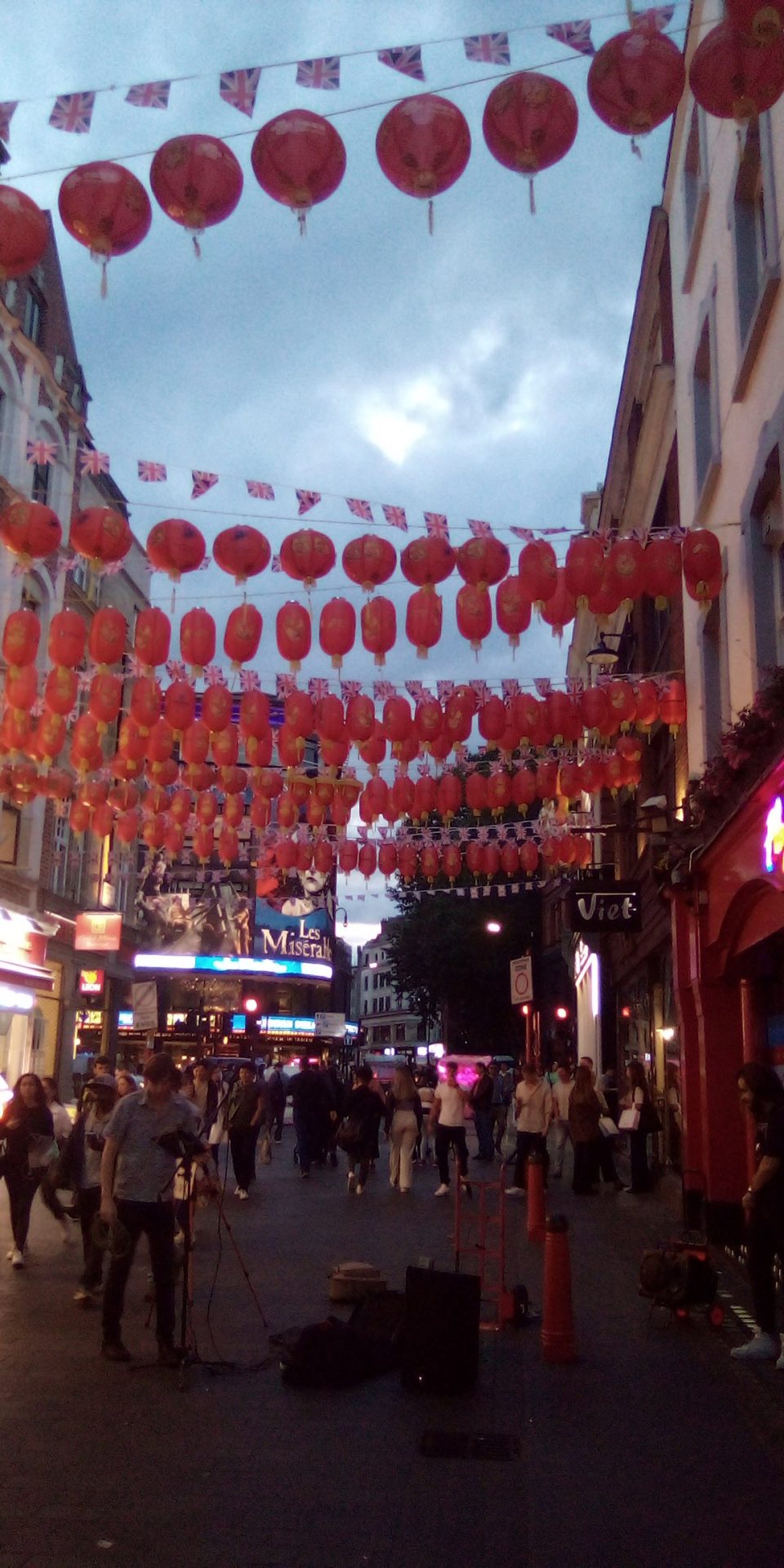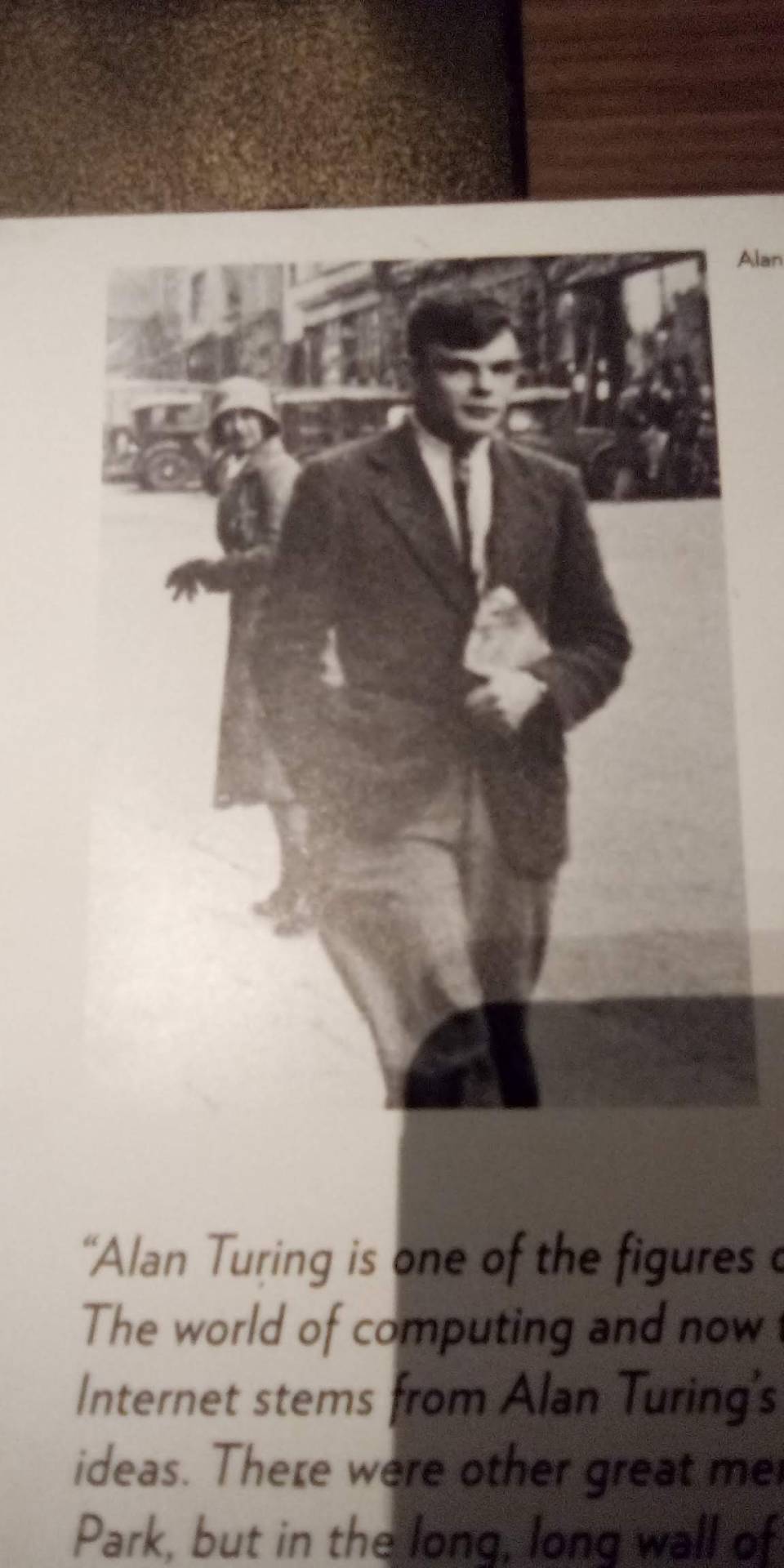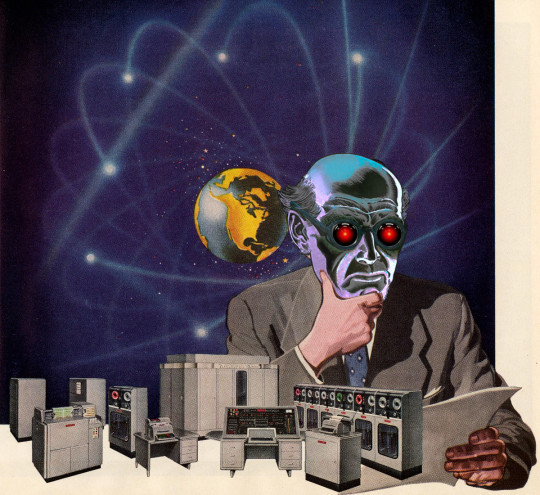#Cheap Essay Service
Explore tagged Tumblr posts
Text
1 note
·
View note
Link
Cost-Effective: The primary benefit of opting for cheap essay services is the cost savings. Students often operate on tight budgets, and these services provide a financially feasible way to get their essays done without compromising on quality. Time-Saving: By outsourcing their essay writing, students can free up valuable time to focus on other academic tasks, part-time jobs, or personal commitments. This helps in maintaining a balanced lifestyle while keeping up with academic demands.
0 notes
Text
How I got scammed

If you'd like an essay-formatted version of this post to read or share, here's a link to it on pluralistic.net, my surveillance-free, ad-free, tracker-free blog:
https://pluralistic.net/2024/02/05/cyber-dunning-kruger/#swiss-cheese-security

I wuz robbed.
More specifically, I was tricked by a phone-phisher pretending to be from my bank, and he convinced me to hand over my credit-card number, then did $8,000+ worth of fraud with it before I figured out what happened. And then he tried to do it again, a week later!
Here's what happened. Over the Christmas holiday, I traveled to New Orleans. The day we landed, I hit a Chase ATM in the French Quarter for some cash, but the machine declined the transaction. Later in the day, we passed a little credit-union's ATM and I used that one instead (I bank with a one-branch credit union and generally there's no fee to use another CU's ATM).
A couple days later, I got a call from my credit union. It was a weekend, during the holiday, and the guy who called was obviously working for my little CU's after-hours fraud contractor. I'd dealt with these folks before – they service a ton of little credit unions, and generally the call quality isn't great and the staff will often make mistakes like mispronouncing my credit union's name.
That's what happened here – the guy was on a terrible VOIP line and I had to ask him to readjust his mic before I could even understand him. He mispronounced my bank's name and then asked if I'd attempted to spend $1,000 at an Apple Store in NYC that day. No, I said, and groaned inwardly. What a pain in the ass. Obviously, I'd had my ATM card skimmed – either at the Chase ATM (maybe that was why the transaction failed), or at the other credit union's ATM (it had been a very cheap looking system).
I told the guy to block my card and we started going through the tedious business of running through recent transactions, verifying my identity, and so on. It dragged on and on. These were my last hours in New Orleans, and I'd left my family at home and gone out to see some of the pre-Mardi Gras krewe celebrations and get a muffalata, and I could tell that I was going to run out of time before I finished talking to this guy.
"Look," I said, "you've got all my details, you've frozen the card. I gotta go home and meet my family and head to the airport. I'll call you back on the after-hours number once I'm through security, all right?"
He was frustrated, but that was his problem. I hung up, got my sandwich, went to the airport, and we checked in. It was total chaos: an Alaska Air 737 Max had just lost its door-plug in mid-air and every Max in every airline's fleet had been grounded, so the check in was crammed with people trying to rebook. We got through to the gate and I sat down to call the CU's after-hours line. The person on the other end told me that she could only handle lost and stolen cards, not fraud, and given that I'd already frozen the card, I should just drop by the branch on Monday to get a new card.
We flew home, and later the next day, I logged into my account and made a list of all the fraudulent transactions and printed them out, and on Monday morning, I drove to the bank to deal with all the paperwork. The folks at the CU were even more pissed than I was. The fraud that run up to more than $8,000, and if Visa refused to take it out of the merchants where the card had been used, my little credit union would have to eat the loss.
I agreed and commiserated. I also pointed out that their outsource, after-hours fraud center bore some blame here: I'd canceled the card on Saturday but most of the fraud had taken place on Sunday. Something had gone wrong.
One cool thing about banking at a tiny credit-union is that you end up talking to people who have actual authority, responsibility and agency. It turned out the the woman who was processing my fraud paperwork was a VP, and she decided to look into it. A few minutes later she came back and told me that the fraud center had no record of having called me on Saturday.
"That was the fraudster," she said.
Oh, shit. I frantically rewound my conversation, trying to figure out if this could possibly be true. I hadn't given him anything apart from some very anodyne info, like what city I live in (which is in my Wikipedia entry), my date of birth (ditto), and the last four digits of my card.
Wait a sec.
He hadn't asked for the last four digits. He'd asked for the last seven digits. At the time, I'd found that very frustrating, but now – "The first nine digits are the same for every card you issue, right?" I asked the VP.
I'd given him my entire card number.
Goddammit.
The thing is, I know a lot about fraud. I'm writing an entire series of novels about this kind of scam:
https://us.macmillan.com/books/9781250865878/thebezzle
And most summers, I go to Defcon, and I always go to the "social engineering" competitions where an audience listens as a hacker in a soundproof booth cold-calls merchants (with the owner's permission) and tries to con whoever answers the phone into giving up important information.
But I'd been conned.
Now look, I knew I could be conned. I'd been conned before, 13 years ago, by a Twitter worm that successfully phished out of my password via DM:
https://locusmag.com/2010/05/cory-doctorow-persistence-pays-parasites/
That scam had required a miracle of timing. It started the day before, when I'd reset my phone to factory defaults and reinstalled all my apps. That same day, I'd published two big online features that a lot of people were talking about. The next morning, we were late getting out of the house, so by the time my wife and I dropped the kid at daycare and went to the coffee shop, it had a long line. Rather than wait in line with me, my wife sat down to read a newspaper, and so I pulled out my phone and found a Twitter DM from a friend asking "is this you?" with a URL.
Assuming this was something to do with those articles I'd published the day before, I clicked the link and got prompted for my Twitter login again. This had been happening all day because I'd done that mobile reinstall the day before and all my stored passwords had been wiped. I entered it but the page timed out. By that time, the coffees were ready. We sat and chatted for a bit, then went our own ways.
I was on my way to the office when I checked my phone again. I had a whole string of DMs from other friends. Each one read "is this you?" and had a URL.
Oh, shit, I'd been phished.
If I hadn't reinstalled my mobile OS the day before. If I hadn't published a pair of big articles the day before. If we hadn't been late getting out the door. If we had been a little more late getting out the door (so that I'd have seen the multiple DMs, which would have tipped me off).
There's a name for this in security circles: "Swiss-cheese security." Imagine multiple slices of Swiss cheese all stacked up, the holes in one slice blocked by the slice below it. All the slices move around and every now and again, a hole opens up that goes all the way through the stack. Zap!
The fraudster who tricked me out of my credit card number had Swiss cheese security on his side. Yes, he spoofed my bank's caller ID, but that wouldn't have been enough to fool me if I hadn't been on vacation, having just used a pair of dodgy ATMs, in a hurry and distracted. If the 737 Max disaster hadn't happened that day and I'd had more time at the gate, I'd have called my bank back. If my bank didn't use a slightly crappy outsource/out-of-hours fraud center that I'd already had sub-par experiences with. If, if, if.
The next Friday night, at 5:30PM, the fraudster called me back, pretending to be the bank's after-hours center. He told me my card had been compromised again. But: I hadn't removed my card from my wallet since I'd had it replaced. Also, it was half an hour after the bank closed for the long weekend, a very fraud-friendly time. And when I told him I'd call him back and asked for the after-hours fraud number, he got very threatening and warned me that because I'd now been notified about the fraud that any losses the bank suffered after I hung up the phone without completing the fraud protocol would be billed to me. I hung up on him. He called me back immediately. I hung up on him again and put my phone into do-not-disturb.
The following Tuesday, I called my bank and spoke to their head of risk-management. I went through everything I'd figured out about the fraudsters, and she told me that credit unions across America were being hit by this scam, by fraudsters who somehow knew CU customers' phone numbers and names, and which CU they banked at. This was key: my phone number is a reasonably well-kept secret. You can get it by spending money with Equifax or another nonconsensual doxing giant, but you can't just google it or get it at any of the free services. The fact that the fraudsters knew where I banked, knew my name, and had my phone number had really caused me to let down my guard.
The risk management person and I talked about how the credit union could mitigate this attack: for example, by better-training the after-hours card-loss staff to be on the alert for calls from people who had been contacted about supposed card fraud. We also went through the confusing phone-menu that had funneled me to the wrong department when I called in, and worked through alternate wording for the menu system that would be clearer (this is the best part about banking with a small CU – you can talk directly to the responsible person and have a productive discussion!). I even convinced her to buy a ticket to next summer's Defcon to attend the social engineering competitions.
There's a leak somewhere in the CU systems' supply chain. Maybe it's Zelle, or the small number of corresponding banks that CUs rely on for SWIFT transaction forwarding. Maybe it's even those after-hours fraud/card-loss centers. But all across the USA, CU customers are getting calls with spoofed caller IDs from fraudsters who know their registered phone numbers and where they bank.
I've been mulling this over for most of a month now, and one thing has really been eating at me: the way that AI is going to make this kind of problem much worse.
Not because AI is going to commit fraud, though.
One of the truest things I know about AI is: "we're nowhere near a place where bots can steal your job, we're certainly at the point where your boss can be suckered into firing you and replacing you with a bot that fails at doing your job":
https://pluralistic.net/2024/01/15/passive-income-brainworms/#four-hour-work-week
I trusted this fraudster specifically because I knew that the outsource, out-of-hours contractors my bank uses have crummy headsets, don't know how to pronounce my bank's name, and have long-ass, tedious, and pointless standardized questionnaires they run through when taking fraud reports. All of this created cover for the fraudster, whose plausibility was enhanced by the rough edges in his pitch - they didn't raise red flags.
As this kind of fraud reporting and fraud contacting is increasingly outsourced to AI, bank customers will be conditioned to dealing with semi-automated systems that make stupid mistakes, force you to repeat yourself, ask you questions they should already know the answers to, and so on. In other words, AI will groom bank customers to be phishing victims.
This is a mistake the finance sector keeps making. 15 years ago, Ben Laurie excoriated the UK banks for their "Verified By Visa" system, which validated credit card transactions by taking users to a third party site and requiring them to re-enter parts of their password there:
https://web.archive.org/web/20090331094020/http://www.links.org/?p=591
This is exactly how a phishing attack works. As Laurie pointed out, this was the banks training their customers to be phished.
I came close to getting phished again today, as it happens. I got back from Berlin on Friday and my suitcase was damaged in transit. I've been dealing with the airline, which means I've really been dealing with their third-party, outsource luggage-damage service. They have a terrible website, their emails are incoherent, and they officiously demand the same information over and over again.
This morning, I got a scam email asking me for more information to complete my damaged luggage claim. It was a terrible email, from a noreply@ email address, and it was vague, officious, and dishearteningly bureaucratic. For just a moment, my finger hovered over the phishing link, and then I looked a little closer.
On any other day, it wouldn't have had a chance. Today – right after I had my luggage wrecked, while I'm still jetlagged, and after days of dealing with my airline's terrible outsource partner – it almost worked.
So much fraud is a Swiss-cheese attack, and while companies can't close all the holes, they can stop creating new ones.
Meanwhile, I'll continue to post about it whenever I get scammed. I find the inner workings of scams to be fascinating, and it's also important to remind people that everyone is vulnerable sometimes, and scammers are willing to try endless variations until an attack lands at just the right place, at just the right time, in just the right way. If you think you can't get scammed, that makes you especially vulnerable:
https://pluralistic.net/2023/02/24/passive-income/#swiss-cheese-security

Image: Cryteria (modified) https://commons.wikimedia.org/wiki/File:HAL9000.svg
CC BY 3.0 https://creativecommons.org/licenses/by/3.0/deed.en
10K notes
·
View notes
Text
0 notes
Note
Hello! Rather new to your blog so I don't know if this has been touched on before but I have a blind character, a few things I was wondering was a) what are fundamentals you shouldn't forget when writing a blind character so I can make her writing a bit more accurate and b) what else can blind people do for entertainment besides reading in braille? Thank you in advance!
Hello!
Your first question is very broad and I'd suggest taking a look at the pinned post for some links to helpful posts. Under the "specific disabilities" section is a list for blind characters. I believe you'll find those helpful.
For your second question, there's so many options out there!
Something to remember is that most blind people have some remaining vision and many can still read print books, especially if they have access to large print versions or E-books with adjustable text sizes. My eyes aren't great but I'm still able to read regular sized print books if the font size is standard and clear. I can also read books with smaller print with the help of magnifying glasses. Depending on your character's level of vision, this could be something to consider.
For indoor/chill activities similar to reading, many are already accessible to blind folks or can easily be made accessible.
Watching TV/films, for example -- with or without audio description. Nowadays with streaming services and the internet, there is more availability of audio description. That said, it's still not always available. There are also some genres of shows/movies that are easy to follow along with even without audio description. I find that sitcoms such as New Girl or Modern Family are easier to follow compared to crime or medical dramas such as NCIS or House.
Listening to content without a visual aspect such as audiobooks, podcasts, and video essays (to a degree) can also be an option.
Playing cards/boardgames is another one. There are braille playing cards that you can buy and many classic board games (such as Scrabble or Monopoly) have braille versions available -- though usually unofficially. You can also get braille or otherwise tactile pieces custom made.
Braille labels are also a thing so games like poker, checkers, etc. can easily be made accessible too. Or, if you're cheap like me, the dollar store has those little raised stickers. My vision is especially bad in bright light so I've spent summers playing checkers and backgammon with little raised flower stickers on top of all the white pieces.
Art and sports also exist. Though blind people can paint and draw, there are also other forms of art that are more tactile such as sculpting, origami, jewelry making, etc. Many solo sports also wouldn't need any major accommodations either -- such as kayaking, hiking, rock climbing, skating, sledding, jogging, etc.
I can go on and on and on listing hobbies/activities -- herping, bird-watching, traveling, theatre, writing, music, dance, video games, cooking/baking, animal training, Dungeons and Dragons -- but my point is: most hobbies/activities can be made accessible for your character.
One piece of advice I'd offer for this: don't choose your character's hobbies based on what would be the most accessible/easiest for them to do. Pick your character's hobbies based on what they'd be most likely to be interested in/enjoy and then go from there to figure out how they can do it.
This would go a long way in preventing your character from falling into certain problematic tropes/stereotypes and can also help you develop your character further.
When figuring out how your character can partake in their hobbies, consider the following questions:
What do they want to get out of the hobby? Is it something they do to relax? To stay in shape? To learn/develop a skill?
What kind of means do they have at their disposal? Are they able to afford/access actual assistive tools/technology/devices such as a braille labeler, audible ball (for sports such as football, soccer, etc.), or braille cards or do they have to DIY something?
How much time/money do they dedicate to this hobby? Is it just a passing interest or is it a passion of their's?
Do they have friends/family members with the same hobbies? Do they share materials with them? Do they do the hobby together?
Is there a disability community for the hobby?* Are they involved in the community?
*Some hobbies such as parasports have a more close-knit community and, depending on where your character's located, there may be recreational leagues for parasports they could join. There are also many artists collectives specifically for disabled artists/writers.
Cheers,
~ Mod Icarus
70 notes
·
View notes
Note
Wizard school that, while one of the best in the land and where many renowned mages learned from, is hazardous. One hazard is the professors that can enact terrible punishments of any kind for rulebreakers.
Fem reader is a student that cheated on her exam and thought she got away with it as she and the other top three students are getting a celebration party put on by their professor.
The professor, a naga, tells the students that got the highest grades (a female drow, a male goblin, and a male tiefling) they can have their way with this cheating whore as a job well done.
Would like some degradation, rimming, smothering, suffocation, and spanking.
Kabr0z Writes Episode 108: Academic Misconduct
Find the rest of the Kabr0z Writes anthology here!
Find the A03 series here!
CWs: Noncon; group sex; physical restraints; forced oral sex; strangulation; barbed phalluses; pain; gratuitous fluids; it's another heavy one. Read to "and do remember to have fun" for the lore and skip the rest if it's too much
A/N: This is one that could 100% go for 2000 words just on the magical academy, but lore in general isn't sexy, and this is a smut series.
Remember, while there is the odd break from requests, this series relies on user input to keep things fresh, otherwise I'll just default back to giving oral service to various monster-people. Drop a request via my asks!
####################################
The Academy of Doissetep was the best in the Seven Kingdoms, maybe the world. Nobody got in in nepotism, there's not even an applications process. Students were chosen by the Great Eye at the entre of the main hall and representatives sent to the prospective mages to notify them they had been accepted, should they desire to attend. Most did, the opportunity to study the arcane crafts with the best of the best drew in apprentices from all walks of life, even those who didn't realise they had any magical aptitude whatsoever. The Academy was the jewel in the crown of the Kingdoms, afforded autonomy and patronage by each of the kings, lest they lose access to the vast intellectual resources of the august institution.
The downside of this autonomy however was that the academy still held some rather archaic methods. Ritual, pomp and circumstance were preserved since centuries immemorial, but so were many of the teaching practices namely the practices used to punish wrongdoing. Minor offences would earn the lash, or a stint in the cells below the Academy for more serious crimes. Stories circulated every year around exam season about the fates of students who dared cheat at their papers, each more grim than the last. None of the faculty would confirm the rumours, instead offering wry looks and advice to work hard so their veracity wouldn't be tested.
You may not have studied as hard as you should. Your paper on Secret Histories was due in the morning. Ten thousand words, and you hadn't even begun yet. You scurried through the library, picking out every relevant book you could, leafing through them in a panic, sipping from cheap wakefulness potions as you went. You didn't need books right now, you needed a solution.
You looked around. The library was empty. The wizened old librarian snored at his desk, the loop of keys to the section forbidden to undergraduates was on his belt. A simple charm of pleasant dreams to deepen his doze, and you had them. Stealing into the gated section was simple this late at night, now to simply dodge the cursed tomes and find... Whatever miracle would help. Maybe a demon to write it for you? Some forgotten secret of Chronomancy to make a night last a month? No. You weren't that skilled, or that desperate. A slip of paper caught your eye. The spell written on it looked almost simple. You read the name: Grim Ali's Essay Writer.
Well fuck. That's going to help.
You copied the slip out onto some parchment, placing it back precisely where it was before returning the keys to the slumbering librarian and settling down into a forgotten corner of the academy. The spell barely required any reagents, nor did it need much knowhow. It was disturbingly complex magic, invoked with simple words and simple practice. The last few lilting syllables tumbled from your lips, and the quill danced to life. It was a blur of motion, writing out a complex historical account complete with references. Within minutes it sat before you. A ten thousand word essay on the Secret Histories. You skimmed it, it seemed fine. Better than fine, it was pretty good. Hell, the damn spell seemed to have a better grasp on the subject than you did. Of course, everything's neatly referenced and tidily formatted. You breathed a sigh of relief and sealed it into a scroll case, posting it into the drop box and collecting a receipt.
Now to wait.
Two weeks later, marks came back. You were amongst the top marks in the class. You and three others received invitations to a dinner with the dean of the academy, a slightly insane old wizard called Porthos Fitzempres. His parties were the talk of Doissetep, invites are closely guarded and rarely received. The party was that night, no plus-ones, just you four and the Dean himself.
You waited outside Porthos' rooms with the others. Antique fabrics and expensive incense painted the air. The door swung open revealing the wizened, silver haired man who ran the academy like his own small kingdom. Porthos beckoned you inside and bade you all sit before starting on one of his signature monologues.
"I'd like to start by congratulating our highest achievers. You who through toil and hard work have lifted yourselves to the highest eschelons. Certainly there is a long career ahead of you in the arcane arts, whether you decide to remain here in academia, or leave our walls and pursue a more practical vocation."
The four of you smiled at one another, silently congratulating each other for drawing such high praise from the grandmaster
"Indeed, it reminds me of a project I once undertook with a few of my fellows. We were faced with a problem. Magic can be bent to do anything your mind desires, from lighting candles, to snuffing out infernoes. Even, I'm told, applications not involving fire" you all laughed, he continued "As we saw it, it was only a matter of time until a student or students found some way to use magic dishonestly."
You shifted in your seat
"Certainly a spell of this type would not be easy to craft. It would require days or weeks of study by several accomplished magi, not something an undergraduate could produce in an evening before a deadline. Or, if they could then the deadline would be largely immaterial to them due to their obvious skill and talent. So, myself and some senior magi formed a cabal. We worked for a decade on one single spell. A trap, of sorts. To be created, then hidden where only a desperate student would find it, and only if they were looking to get ahead dishonestly."
A single bead of sweat ran down your back
"We were, of course, successful. A one-of-a-kind incantation that would write a whole essay for the user. The essay would seem correct, but would fall down under the slightest scrutiny. A mass of outlandish claims and garbled references, evident immediately to one schooled in the art."
You relaxed a little. He must be talking about a different poorly-hidden essay writing spell.
"We named it Grim Ali's Essay Writer."
Bollocks. He knew, didn't he.
You stayed in your seat. He was looking at you. You realised he'd been looking at you the whole time. Your eyes cast around you, at your classmates. They were staring at you too.
Porthos continued, as if to hammer his point home "It is important to remember in all things. Dishonesty is often a tool a mage must employ, but only when dealing with the sleepers. When one of us is dishonest, we betray not just ourselves, not just our college, but our entire community."
He flicked his wrist. A wave of heat spread across you, burning your robe to ash, revealing your pale skin, the soft rolls of flesh around your midriff and plush thighs. Showing your pendulous tits and your large areolas to your classmates. They looked at you hungrily.
"For the rest of you, Danso, Ferez, Pierre, please. Teach her not to betray you again. Do not think to be lenient, her crimes are severe, and we must disabuse such notions." Porthos stepped into his fireplace, melting into the flames "And do remember to have fun"
You tried to stand. Danso, the tall, slender Drow, cast an entanglement charm, binding you to the chair with whiplike brambles. The goblin Ferez and the Tiefling, Pierre set upon your naked body. Thorns dug into your skin as they hiked their robes up, exposing themselves. Pierre stood over you, his spade-tipped tail slipping around your neck, pulling your face into his balls. He filled your mouth and your nose with his musk, grinding his hardening rod into your face.
You felt a pair of small, clawed hands pulling your thighs apart. Danso was stood to one side of you so it must be Ferez. He was less bothered by foreplay than Pierre, his sharp claws making you gasp in another lungful of Tiefling stink as they left thin gashes on the delicate skin of your inner thighs. The tip of his already-hard cock was poised against your entrance, the pointed head parting the petals of your labia. Pierre lifted himself slightly so you could look the diminutive goblin in his large, red eyes before he thrust himself into you.
He was long, but on the thinner side. You gasped as he violated you, sliding himself into you up up to the hilt. He stayed a moment, looking at you. A sharp-toothed grin split his features as he slowly withdrew. Your gasp turned to a pained wail. Sharp barbs raked across your insides, ringing him in regular ridges. Every push in filled you, every pull out hurt. Your jaw was hanging open in a silent cry of pain as your eyes crewed shut.
It wasn't empty for long. Pierre's cock slid in as his tail tightened around your neck and his hand gripped the back of your head. He was going to use you as a sleeve. He slid your head up and down his shaft as stars bloomed behind your eyes from the squeezing of his tail. Every so often he'd release you to take a few more gasping breaths through the slime rising in your throat before driving himself back in, pressing into the soft flesh at the back of your mouth, leaving a few more drops of umami precum with every stroke.
Your mind swam, pain in your cunt, cock in your mouth, balls slapping your chin as your breath was being controlled. You felt your body respondin to the men using you. Your throat was filling with drool and slime, bubbling up into your mouth. Your cunt was dripping wet, trying to protect itself from the thorny goblin cock filling it.
Pierre pulled himself from your mouth. You felt a warmth in front of your face. You opened one eye to see Danso, her ass hovering above your face as Pierre rubbed the end of his cock on her cunt, painting her with the lubricant he'd got from your mouth before sliding himself into her. The tail around your neck pulled your face forward as she sat back. Her asscrack sealed around your face, your mouth pressed against her hole as the Tiefling pushed into her. You heard her gasp above you as he filled her, felt every thrust as she ground herself into you. Her juices mixed with yours, dripping onto your tits as they fucked above you. Pierre grunted, Danso sighed. He pressed into her, you felt him throbbing as she rolled her hips and held him in, taking all of his cum into herself before turning around, straddling you from the front and burying your face into her slick, open cunt.
Ferez jolted in you. You could feel him reaching his peak from watching the two others fucking over you. He twitched and gibbered as a fountain of hot spunk emptied into your cunt, painting your womb with virile seed as he shook inside you. The sharp barbs scratched at you, making you groan and accept the slimy Drow pussy. You could taste Pierre's cum as it leaked out of her, she pressed on her belly, forcing more of it out, dribbling it down your throat as she gyrated against you, humping her way to an orgasm on your face. You were covered in slick slime, feeling it cooling on your face, spiking your hair up at odd angles, flooding your mouth and nose. Danso pulled herself off you, fingering her cunt, curling her hand inside herself as she groaned and rubbed her clit. You could smell her arousal, the musky sweet scent filled your hazy awareness. Danso cried out above you, pulling her hand out of herself as she squirted onto you. The stream of clear, sweet smelling squirt covered you in another layer of liquid, getting into your mouth and your eyes.
The three other mages left the room, adjusting their robes as they did.
You lay there, sodden, scratched, bruised, leaking, covered in sex and shame.
############################################
Sorry this one's late! I'm planning on a short one again tonight to keep pace, then back to normal service tomorrow. I'm also planning to make a new audio, vote in the poll below for what you'd want, because the only thing hotter than making an audio is obeying instructions while I'm doing it.
#kabr0z writes#original content#textposts#fem!reader#monster smut#monster fucker#monster fuqqer#monster x fem!reader#group x fem!reader#cw group sex#cw noncon#g4ngb4ng#g4ngr4pe#cw oral sex#r1mming#cw strangulation#lore dump#oc lore#send asks#free commissions#writing commissions#long reads#send reqs#send requests#commissions open#send me asks#send me anything#tiefling#drow oc#drow
48 notes
·
View notes
Text
Donald Trump wants to make America like russia
Trumps supporters would view that as a return to "traditional strong values" viewing russia through the lens of Moscow and st Petersburg
When the rest of Russia is extremely poor, and extremely out of date with its infrastructure, despite its large population, land, resources and its supposedly powerful military.
then why is none of this wealth going down there as well? Because this is the corporatist economic plan, all resources are pooled near the top including local resources which are to be moved through the channels at the top and only a small bit of what they make comes back.
This is akin to working in a factory making thousands of dollars worth of profit but only making back less then 100 dollars in a day something that is a part of corporate, earnings focused economics and is what people would have critiqued in the Soviet union but happen in spades in America and the Soviet union.
This is because the Soviet union while having collectivist policies this collective is managed in a way that benefits the state and then after the Soviet unions fall, putin and the oligarchy.
And we our country and China do these exact things leading to pockets of great success with pockets of impoverished towns that are reliant on government aid. Ironically in america despite these areas being largely republican which usually dislikes government aid.
As well in America we have medium areas of moderate wealth but these are shrinking, the older generations that live in large but affordable houses are moving on while the younger generations are unable to move into these houses because they're no longer priced as affordable despite the increase in houses, apartments and condos, the prices are ballooning leading to infinite empty houses and a dying middle class until we are as disparited I'm wealth as russia and China.
This is because the only successes that matter are the ones at the top, the ones that trump and elon are focused on, they are gutting government services that are vital to American life while making living hostile.
Now the possible outcome is that trumps claims that he's bringing back blue collar jobs in America despite it being corporations that moved to manufacturing in places like China because of how cheap and "efficient" they are but I digress.
The likely outcome may be that he will dismantle protections in workers allowing the working class to be a cheap and "efficient" as china at which point he'll claim success on bringing back the working class when all he's actually done is eliminate american quality of life.
But to circle back to the beggining of this short essay, trumps supporters will claim this all a huge success because even though the quality of life is in the bin and there will be little access to commodities, in there eyes at least there will be no blacks and "dei" hires at their job, the lady they had sex with was forced to become their "happy" wife because she got pregnant and trans people and immigrants are in cages or dead. A return to "the good old days".
#transgender#trans rights#lgbt#politics#gay#us politics#donald trump#trump administration#fuck trump#russia#vladimir putin#putin#china#elon musk#musk#dei#abortion#feminism#people of color#important#america#amerikkka
24 notes
·
View notes
Note
Ouch with the whole Suzanne already ruin that comment, which I think was abiur sotr? . I remember you made a post about how some will say this book ruin the trilogy for them ? Don’t you think you’re being a bit harsh with it? Sorry you feel that tho
I could write an essay (and already have a draft on one of these points) but I'm tired so here:
Haymitch does not reflect the Haymitch we know from the trilogy, specifically with his cleverness.
Haydove was poorly written and an unconvincing romance
Snow is stupid. Like. Why did he not kill Haymitch for trying to blow up the arena. Why let him get so close to winning. Oh, right, because of a situationship 40 years before he's going to...prolong???...Haymitch's life???
Effie showing up was definitely "Suzanne-service" (look at the B&N interview—she talked about how she loved writing the old characters in the book). What little grace I could give Effie (assuming she was young-ish, somewhat new to the Games, that the sex trafficking was kept secret from escorts) is now gone.
With the above point, Haymitch felt absolutely squeezed between TBOSAS and the original trilogy with little room for his own relationships separate from Snow and Katniss's.
Katniss has lost her everywoman status in favor of a cheap Chosen One trope, opening this world to be one of fate and/or conspiracy, and diminishing the idea that anyone, no matter how unimportant, could stand up against oppression and make a change. Now you need to have a special lineage and/or a destiny to be allowed to make an impact.
The Seam/Merchant divide is not described based off of race. I guess it just exists. No particular reason.
Mrs. Everdeen is now Ass-turd
And I want to be clear: I was rooting for this book. I defended it. I scoffed at it being a cash-grab. So this is not coming from someone who was a skeptic initially. I had a lot of faith, but Suzanne did ruin it. She ruined Haymitch and Katniss in particular with this one. And it's not that she did nothing right or there's nothing redeemable, but in the broader world and story, particuarly with Katniss, she did ruin it.
I've been feeling like my mom has divorced my dad and brought in this new guy to be my stepdad and he's not the worst thing ever, but I don't connect with him, I don't like him, and I just want my dad back. So I'm trying to get along with the new guy because I don't want to lose my mom or fight with her, but it's not getting better with time. And like, my dad is still there, but it's different now and he's different. What I thought I knew, what I understood, was I guess my parents lying to me or covering up what was going on. And so what I've said about their relationship to others is now just...not true. I guess it never was true, but, they lied to me? This whole time they were lying? Or my perception was what I wanted it to be and now they're telling me I was just wrong about the whole thing? And with my parents' relationship being the starting point of so much of my understanding about life just makes me go...well, I don't know how I ended up here, but now I feel like I'm off from where I was intended to go. But I think I like it better here. But there's still a distance between where I am and where I was apparently meant to go, and I don't think that the distance can close now between me and what I was once close to.
25 notes
·
View notes
Text
Prison-tech is a scam - and a harbinger of your future

If you'd like an essay-formatted version of this post to read or share, here's a link to it on pluralistic.net, my surveillance-free, ad-free, tracker-free blog:
https://pluralistic.net/2024/02/14/minnesota-nice/#shitty-technology-adoption-curve

Here's how the shitty technology adoption curve works: when you want to roll out a new, abusive technology, look for a group of vulnerable people whose complaints are roundly ignored and subject them to your bad idea. Sand the rough edges off on their bodies and lives. Normalize the technological abuse you seek to inflict.
Next: work your way up the privilege gradient. Maybe you start with prisoners, then work your way up to asylum seekers, parolees and mental patients. Then try it on kids and gig workers. Now, college students and blue collar workers. Climb that curve, bit by bit, until you've reached its apex and everyone is living with your shitty technology:
https://pluralistic.net/2021/02/24/gwb-rumsfeld-monsters/#bossware
Prisoners, asylum seekers, drug addicts and other marginalized people are the involuntary early adopters of every form of disciplinary technology. They are the leading indicators of the ways that technology will be ruining your life in the future. They are the harbingers of all our technological doom.
Which brings me to Minnesota.
Minnesota is one of the first states make prison phone-calls free. This is a big deal, because prison phone-calls are a big business. Prisoners are literally a captive audience, and the telecommunications sector is populated by sociopaths, bred and trained to spot and exploit abusive monopoly opportunities. As states across America locked up more and more people for longer and longer terms, the cost of operating prisons skyrocketed, even as states slashed taxes on the rich and turned a blind eye to tax evasion.
This presented telco predators with an unbeatable opportunity: they approached state prison operators and offered them a bargain: "Let us take over the telephone service to your carceral facility and we will levy eye-watering per-minute charges on the most desperate people in the world. Their families – struggling with one breadwinner behind bars – will find the money to pay this ransom, and we'll split the profits with you, the cash-strapped, incarceration-happy state government."
This was the opening salvo, and it turned into a fantastic little money-spinner. Prison telco companies and state prison operators were the public-private partnership from hell. Prison-tech companies openly funneled money to state coffers in the form of kickbacks, even as they secretly bribed prison officials to let them gouge their inmates and inmates' families:
https://www.motherjones.com/politics/2019/02/mississippi-corrections-corruption-bribery-private-prison-hustle/
As digital technology got cheaper and prison-tech companies got greedier, the low end of the shitty tech adoption curve got a lot more crowded. Prison-tech companies started handing out "free" cheap Android tablets to prisoners, laying the groundwork for the next phase of the scam. Once prisoners had tablets, prisons could get rid of phones altogether and charge prisoners – and their families – even higher rates to place calls right to the prisoner's cell.
Then, prisons could end in-person visits and replace them with sub-skype, postage-stamp-sized videoconferencing, at rates even higher than the voice-call rates. Combine that with a ban on mailing letters to and from prisoners – replaced with a service that charged even higher rates to scan mail sent to prisoners, and then charged prisoners to download the scans – and prison-tech companies could claim to be at the vanguard of prison safety, ending the smuggling of dope-impregnated letters and other contraband into the prison system.
Prison-tech invented some wild shit, like the "digital stamp," a mainstay of industry giant Jpay, which requires prisoners to pay for "stamps" to send or receive a "page" of email. If you're keeping score, you've realized that this is a system where prisoners and their families have to pay for calls, "in-person" visits, handwritten letters, and email.
It goes on: prisons shuttered their libraries and replaced them with ebook stores that charged 2-4 times the prices you'd pay for books on the outside. Prisoners were sold digital music at 200-300% markups relative to, say, iTunes.
Remember, these are prisoners: locked up for years or decades, decades during which their families scraped by with a breadwinner behind bars. Prisoners can earn money, sure – as much as $0.89/hour, doing forced labor for companies that contract with prisons for their workforce:
https://www.prisonpolicy.org/blog/2017/04/10/wages/
Of course, there's the odd chance for prisoners to make really big bucks – $2-5/day. All they have to do is "volunteer" to fight raging wildfires:
https://www.hcn.org/articles/climate-desk-wildfire-california-incarcerated-firefighters-face-dangerous-work-low-pay-and-covid19/
So those $3 digital music tracks are being bought by people earning as little as $0.10/hour. Which makes it especially galling when prisons change prison-tech suppliers, whereupon all that digital music is deleted, wiping prisoners' media collection out – forever (literally, for prisoners serving life terms):
https://www.eff.org/deeplinks/2018/08/captive-audience-how-floridas-prisons-and-drm-made-113m-worth-prisoners-music
Let's recap: America goes on a prison rampage, locking up ever-larger numbers of people for ever-longer sentences. Once inside, prisoners had their access to friends and family rationed, along with access to books, music, education and communities outside. This is very bad for prisoners – strong ties to people outside is closely tied to successful reentry – but it's great for state budgets, and for wardens, thanks to kickbacks:
https://www.prisonpolicy.org/blog/2021/12/21/family_contact/
Back to Minnesota: when Minnesota became the fourth state in the USA where the state, not prisoners, would pay for prison calls, it seemed like they were finally breaking the vicious cycle in which every dollar ripped off of prisoners' family paid 40 cents to the state treasury:
https://www.kaaltv.com/news/no-cost-phone-calls-for-those-incarcerated-in-minnesota/
But – as Katya Schwenk writes for The Lever – what happened next is "a case study in how prison communication companies and their private equity owners have managed to preserve their symbiotic relationship with state corrections agencies despite reforms — at the major expense of incarcerated people and their families":
https://www.levernews.com/wall-streets-new-prison-scam/
Immediately after the state ended the ransoming of prisoners' phone calls, the private-equity backed prison-tech companies that had dug their mouth-parts into the state's prison jacked up the price of all their other digital services. For example, the price of a digital song in a Minnesota prison just jumped from $1.99 to $2.36 (for prisoners earning as little as $0.25/hour).
As Paul Wright from the Human Rights Defense Center told Schwenk, "The ideal world for the private equity owners of these companies is every prisoner has one of their tablets, and every one of those tablets is hooked up to the bank account of someone outside of prison that they can just drain."
The state's new prison-tech supplier promises to double the amount of kickbacks it pays the state each year, thanks to an aggressive expansion into games, money transfers, and other "services." The perverse incentive isn't hard to spot: the more these prison-tech companies charge, the more kickbacks they pay to the prisons.
The primary prison-tech company for Minnesota's prisons is Viapath (nee Global Tel Link), which pioneered price-gouging on in-prison phone calls. Viapath has spent the past two decades being bought and sold by different private equity firms: Goldman Sachs, Veritas Capital, and now the $46b/year American Securities.
Viapath competes with another private equity-backed prison-tech giant: Aventiv (Securus, Jpay), owned by Platinum Equity. Together, Viapath and Aventiv control 90% of the prison-tech market. These companies have a rap-sheet as long as your arm: bribing wardens, stealing from prisoners and their families, and recording prisoner-attorney calls. But these are the kinds of crimes the state punishes with fines and settlements – not by terminating its contracts with these predators.
These companies continue to flout the law. Minnesota's new free-calls system bans prison-tech companies from paying kickbacks to prisons and prison-officials for telcoms services, so the prison-tech companies have rebranded ebooks, music, and money-transfers as non-communications products, and the kickbacks are bigger than ever.
This is the bottom end of the shitty technology adoption curve. Long before Ubisoft started deleting games that you'd bought a "perpetual license" for, prisoners were having their media ganked by an uncaring corporation that knew it was untouchable:
https://www.youtube.com/watch?v=VIqyvquTEVU
Revoking your media, charging by the byte for messaging, confiscating things in the name of security and then selling them back to you – these are all tactics that were developed in the prison system, refined, normalized, and then worked up the privilege gradient. Prisoners are living in your technology future. It's just not evenly distributed – yet.
As it happens, prison-tech is at the heart of my next novel, The Bezzle, which comes out on Feb 20. This is a followup to last year's bestselling Red Team Blues, which introduced the world to Marty Hench, a two-fisted, hard-bitten, high-tech forensic accountant who's spent 40 years busting Silicon Valley finance scams:
https://us.macmillan.com/books/9781250865878/thebezzle
In The Bezzle, we travel with Marty back to the mid 2000s (Hench is a kind of tech-scam Zelig and every book is a standalone tale of high-tech ripoffs from a different time and place). Marty's trying to help his old pal Scott Warms, a once-high-flying founder who's fallen prey to California's three-strikes law and is now facing decades in a state pen. As bad as things are, they get worse when the prison starts handing out "free" tablet and closing down the visitation room, the library, and the payphones.
This is an entry to the thing I love most about the Hench novels: the opportunity to turn all this dry, financial skullduggery into high-intensity, high-stakes technothriller plot. For me, Marty Hench is a tool for flensing the scam economy of all its layers of respectability bullshit and exposing the rot at the core.
It's not a coincidence that I've got a book coming out in a week that's about something that's in the news right now. I didn't "predict" this current turn – I observed it. The world comes at you fast and technology news flutters past before you can register it. Luckily, I have a method for capturing this stuff as it happens:
https://pluralistic.net/2021/05/09/the-memex-method/
Writing about tech issues that are long-simmering but still in the periphery is a technique I call "predicting the present." It's the technique I used when I wrote Little Brother, about out-of-control state surveillance of the internet. When Snowden revealed the extent of NSA spying in 2013, people acted as though I'd "predicted" the Snowden revelations:
https://www.wired.com/story/his-writing-radicalized-young-hackers-now-he-wants-to-redeem-them/
But Little Brother and Snowden's own heroic decision have a common origin: the brave whistleblower Mark Klein, who walked into EFF's offices in 2006 and revealed that he'd been ordered by his boss at AT&T to install a beam-splitter into the main fiber trunk so that the NSA could illegally wiretap the entire internet:
https://www.eff.org/document/public-unredacted-klein-declaration
Mark Klein inspired me to write Little Brother – but despite national press attention, the Klein revelations didn't put a stop to NSA spying. The NSA was still conducting its lawless surveillance campaign in 2013, when Snowden, disgusted with NSA leadership for lying to Congress under oath, decided to blow the whistle again:
https://apnews.com/article/business-33a88feb083ea35515de3c73e3d854ad
The assumption that let the NSA get away with mass surveillance was that it would only be weaponized against the people at the bottom of the shitty technology adoption curve: brown people, mostly in other countries. The Snowden revelations made it clear that these were just the beginning, and sure enough, more than a decade later, we have data-brokers sucking up billions in cop kickbacks to enable warrantless surveillance, while virtually following people to abortion clinics, churches, and protests. Mass surveillance is chugging its way up the shitty tech adoption curve with no sign of stopping.
Like Little Brother, The Bezzle is intended as a kind of virtual flythrough of what life is like further down on that curve – a way for readers who have too much agency to be in the crosshairs of a company like Viapath or Avently right now to wake up before that kind of technology comes for them, and to inspire them to take up the cause of the people further down the curve who are mired in it.
The Bezzle is an intense book, but it's also a very fun story – just like Little Brother. It's a book that lays bare the internal technical workings of so many scams, from multi-level marketing to real-estate investment trusts, from music royalty theft to prison-tech, in the course of an ice-cold revenge plot that keeps twisting to the very last page.
It'll drop in six days. I hope you'll check it out:
https://us.macmillan.com/books/9781250865878/thebezzle
#pluralistic#the bezzle#marty hench#books#prison-tech#scams#jpay#securus#minnesota#prisones#shitty technology adoption curve#drm#enshittification#kickbacks#corruption#private equity#viapath#global tel link#bribery#aventiv#disciplinary technology#fcc#predicting the present#carceral state
588 notes
·
View notes
Text

Lavender miniskeins, available on sock or DK. I’ve finally managed to get a printer, the best one I could afford. Unfortunately, it’s refusing to connect via WiFi or Bluetooth so I now also have to buy a cable. And since the cable will connect it to a computer, rather than my phone, I have the additional problem that the laptop I bought for the shop last year was so cheap it ceased working the first time I was forced to upgrade Windows on it.
Not being able to have decent stuff in the first place only makes it more expensive in the long run. I do have a laptop I use for studying, but having to take that to the shop every time someone overseas makes a purchase is not ideal. I’m forgetful, and it might get damaged. I can’t afford to risk my ability to write essays for university.
No, I do not need advice about Royal Mail services. It would be kind of wild to imagine I haven’t looked into all locally available and realistic options given that my livelihood depends on it. What I actually need is for any of: (a) one of the three local post offices to accept my mail, (b) a working computer for the shop, or (c) printers not to be dicks about wireless connectivity.
Argh! 😱 Things can be so frustrating, can’t they?!?
#mothyandthesquid#yarn#knitting#knit#yarnaddict#knittersofinstagram#crochet#yarnlove#miniskeins#yarnlover
48 notes
·
View notes
Text
Listen up, fellow queers and token straights, we're not gonna whine about the lack of new media during the strike and we're not gonna waiver in our support of the strikers.
In the meantime, we are going to recommend to each other more already-existing media than any of us could ever watch given several lifetimes to do it in.
I'll go first. Here are just a few of the creators I care about and want you to support.
FREE TO WATCH:
Filmjoy: This YouTube channel (Movies with Mikey, Deep Dive, etc.) makes incredibly well-produced video essays on film and occasionally TV and games. The channel's focus is on positivity and finding things to love about everything. And YouTube doesn't promote that sort of thing anymore, so the channel's creators (one of whom has multiple sclerosis) are running out of money and close to losing their house. Binge these genuinely incredible video essays with adblock turned off or, better yet, sign up to their Patreon and binge them with adblock on. Seriously, I love this channel so much, and if they don't get a boost in income soon, they're going to have to stop making videos. And I want more videos. Seriously, even watch the videos about things you haven't seen. They've persuaded me to watch loads of stuff I never would have watched otherwise and they're very good about not spoiling things (and giving spoiler warnings when needed).
AyeForScotland on Twitch: This is Tumblr's very own very handsome pro-Scottish-independence @ayeforscotland who has an incredible accent and plays loads of interesting games. He's going for Partner on Twitch now, which he has already earned but been denied due to an absurd technicality regarding whether viewers being linked to the channel directly from Tumblr integration. Go follow him now if he's not live, and when he goes live, go to Twitch and manually click on his name to watch the stream, since that's apparently the best way to get him the boost he needs. He sometimes has @thebibliosphere on as a guest (DOUBLE SCOTTISH ACCENTS HELL YES) and you can watch archives of many of his streams on his YouTube Channel.
Africa Everyday: This YouTube channel is run by Babatunde, a Nigerian man who shares his life and culture, makes cooking videos, and generally is a pleasure to watch and listen to. Seriously he's one of the kindest human beings I've ever spoken with. The money he earns from the channel goes towards helping his family and his community.
CHEAP AND WORTH PAYING FOR:
Dropout.tv: You simply will not find better comedy entertainment for the money. A monthly or yearly subscription is just a few dollars a month and gives you access to countless hours of top-quality entertainment from a company that started their own streaming service rather than cater to YouTube's algorithm. This is the place that started as College Humor, but if you haven't seen them in a while, you really need to check it back out. They're incredibly inclusive in their casting and theming and the production values are insane. I recommend starting with Game Changer, a show which has made me laugh so hard I choked and almost threw up. They also have Dimension 20 (or D20), the highest-quality DnD series out there, with custom-made sets and minis, usually with a focus on sheer comedy rather than drama (most of the cast members are comedy writers or comedians) - but it WILL and I mean WILL make you cry now and then. The currently in-progress season of D20 is called Dungeons and Drag Queens and the players are four literal actual fucking drag queens including Bob the Drag Queen and friends? You need to be watching this. If you have any doubts about whether Dropout is worth it or don't have any money, you can watch many full episodes for free on the CollegeHumor YouTube channel, although they have to censor the swears on there.
Nebula: Remember Lindsay Ellis? She left YouTube because of [too many reasons to list] but it turns out she's still active, she's just on Nebula now. Nebula is the co-op of streaming sites. Users sign up for a low monthly fee and the income is distributed among the creators, weighted according to how many views they get. The videos are uncensored and ad-free and contain lots of stuff that later needs to be edited out of YouTube videos to avoid copyright strikes. They've got FilmJoy on there (remember them from the start of this list?), Philosophy Tube (@theabigailthorn), Jacob Geller, Extra Credits, and loads and loads of other stuff on all different sorts of topics. Many of these channels also have YouTube channels that contain most of their content if you can't afford a Nebula subscription, but Nebula supports them more and gives them more creative freedom.
I'm gonna stop here for now but I'll add more in reblogs as the strike continues.
I hereby invite all of you to ruin my notifications until the strike is over. Reblog this, add your recommendations (especially ones that most people might not know about), and pass it on. There will not be a single complaint about lack of things to watch while the strike is ongoing.
(Why yes I am looking for more things to watch too. I've already seen all of the above. Bring it on.)
(And if you have a few dollars to spare, support the strikers directly at the Entertainment Community Fund.)
123 notes
·
View notes
Text
Best Nursing Assignment Help Service
Nursing is one of the most challenging yet rewarding professions in the healthcare industry. However, the path to becoming a nurse isn't easy. Nursing students often find themselves overwhelmed by the rigorous coursework, clinical practice, and the countless assignments that come with the territory. These assignments play a critical role in their education, helping them develop the knowledge and skills necessary to provide quality patient care.
But what happens when the pressure becomes too much? Many students turn to nursing assignment help services to ease the burden. In this guide, we’ll explore why nursing assignments are so important, the challenges students face, and how nursing assignment help can be a valuable resource.
The Importance of Nursing Assignments
Nursing assignments aren’t just busy work. They are carefully designed to help students grow academically and professionally. Through assignments, students learn how to apply theoretical knowledge to practical scenarios, preparing them for the real-world challenges they'll face in clinical settings.
These tasks also serve as a tool for educators to assess critical thinking, decision-making, and problem-solving skills—key traits of any competent nurse. Furthermore, nursing assignments contribute to a deeper understanding of patient care, medical procedures, and ethical considerations.
Common Types of Nursing Assignments
Nursing students encounter various types of assignments throughout their education, each focusing on different aspects of nursing practice.
Case Studies: These assignments require students to analyze patient scenarios and develop care plans. They help in understanding patient care from diagnosis to treatment.
Research Papers: Research assignments encourage students to engage with the latest medical literature and contribute to evidence-based practice.
Care Plans: Developing individualized care plans allows students to apply theoretical knowledge in practical scenarios, ensuring patients receive tailored care.
Reflective Journals: Reflective writing helps students think critically about their experiences in clinical practice, encouraging personal and professional growth.
Challenges Students Face in Nursing Assignments
Nursing assignments come with their own set of challenges. Balancing academic work with clinical practice, family obligations, and personal life is a struggle for many students.
Time Management Issues: Nursing students often juggle tight schedules, making it difficult to complete assignments on time.
Understanding Complex Medical Terms: Nursing is a specialized field with its own language. Mastering medical terminology can be daunting, especially for those new to the field.
Critical Thinking Development: Transitioning from textbook knowledge to real-life application requires strong critical thinking skills, which many students struggle to develop.
APA Referencing and Formatting: Academic writing standards, like APA formatting, are strict and can be tricky for students unfamiliar with them.
Why Seek Nursing Assignment Help?
Given these challenges, it’s no wonder that many nursing students seek outside help to complete their assignments.
Managing Workload: Nursing assignment help services can alleviate the pressure, allowing students to focus on other aspects of their studies, such as clinical practice.
Improving Grades: These services provide expertly written assignments, often resulting in better grades.
Learning Through Expert Assistance: By working with professionals in the field, students gain valuable insights that enhance their learning.
Time for Clinical Practice: More time can be allocated to hands-on learning, which is crucial for any nursing student.
Features of a Good Nursing Assignment Help Service
When looking for nursing assignment help, there are a few key features to consider:
Expert Writers with Nursing Background: Look for services that employ writers with nursing or healthcare backgrounds. This ensures the assignments are accurate and relevant.
Timely Delivery: Meeting deadlines is crucial in nursing school, and a good service will always deliver on time.
Plagiarism-Free Work: Originality is key, and the best services will provide plagiarism-free assignments.
24/7 Customer Support: Look for services that offer around-the-clock support for any last-minute questions or changes.
Customization and Adherence to Guidelines: Every assignment is different, and a good service will tailor the work to meet your specific requirements.
How Nursing Assignment Help Services Work
Most nursing assignment help services follow a simple process:
Submit Your Requirements: Provide detailed information about your assignment, including the topic, word count, deadline, and any special instructions.
Work with Expert Writers: The service will assign your task to a qualified writer who understands the subject.
Review the Draft: You’ll receive a draft for review and have the opportunity to request revisions if necessary.
Final Submission: After making revisions, the final assignment is delivered to you, ready for submission.
Tips for Choosing the Best Nursing Assignment Help Service
Not all services are created equal, so here are some tips to help you choose the right one:
Look for Expertise in Nursing Field: Ensure the service has writers with healthcare qualifications.
Check for Reviews and Testimonials: Student reviews can give you a good sense of a service’s reliability and quality.
Consider Pricing and Budget: While you want quality work, make sure the service fits within your budget.
Ensure They Offer Revisions: Revisions are crucial to getting the best final product.
The Ethical Considerations in Using Assignment Help
Using nursing assignment help services ethically is important. These services should be seen as a learning tool rather than a shortcut to success.
Ensuring it’s Used as a Learning Tool: Use the assignments provided as a study guide to improve your understanding of the subject.
Avoiding Plagiarism: Always ensure the work is original and properly referenced.
Fostering Independent Learning: Nursing students should use these services to complement their learning, not replace it.
How to Write a Nursing Assignment on Your Own
While assignment help services are great, learning to complete assignments on your own is crucial for academic and professional growth.
Understanding the Question: Break down the assignment question and identify what is being asked.
Researching the Topic: Use credible sources like peer-reviewed journals and textbooks.
Developing an Outline: Plan your assignment structure before writing to ensure clarity.
Writing Clearly and Concisely: Avoid unnecessary jargon and keep your writing precise.
Citing Properly: Follow the required citation style to avoid plagiarism.
Common Mistakes in Nursing Assignments
Many students make similar mistakes when completing their nursing assignments:
Failing to Answer the Question: Always ensure your work directly addresses the assignment prompt.
Poor Research: Relying on non-credible sources weakens the quality of the assignment.
Inadequate Referencing: Ensure you cite all your sources correctly to avoid plagiarism.
Not Proofreading: Spelling and grammar mistakes can easily lower your grade.
How to Improve Your Nursing Assignment Writing Skills
Improving your nursing assignment writing skills takes time and practice:
Practice Regularly: The more you write, the better you’ll get.
Seek Feedback: Always ask for feedback from professors or peers to help you improve.
Use Online Tools: Grammar checkers, citation generators, and other tools can help you refine your writing.
Benefits of Collaborating with Peers on Nursing Assignments
Collaborating with classmates can be a great way to tackle nursing assignments:
Sharing Knowledge: Group discussions can lead to better understanding of complex topics.
Different Perspectives: Collaboration exposes you to different ideas and approaches.
Improving Problem-Solving Skills: Working together helps develop better solutions to nursing challenges.
Nursing Assignment Help and Academic Integrity
Maintaining academic integrity is essential, even when using nursing assignment help services.
Maintaining Integrity in Academic Work: Always use the service as a tool for learning, not just for completing tasks.
When Help Becomes Cheating: Ensure that you’re still doing your own work and using help services ethically.
Conclusion
Nursing assignments are an integral part of the educational process, preparing students for the complex world of healthcare. While they can be challenging, nursing assignment help services offer a valuable resource for those who need assistance. However, it’s important to balance external help with personal effort to ensure true learning and academic integrity.
FAQs
What are the most common nursing assignments?
Case studies, research papers, care plans, and reflective journals are the most common nursing assignments.
How do nursing assignment help services maintain academic integrity?
Reputable services provide original content and encourage students to use the assignments as learning tools, not as a way to cheat.
How can I ensure my nursing assignment is plagiarism-free?
Use a plagiarism checker and ensure all sources are properly cited.
What should I do if I struggle with referencing in my nursing assignment?
You can use online citation tools or seek help from your institution’s writing center.
Are nursing assignment help services ethical? Yes, as long as they are used to supplement learning and not to replace personal effort.
#homework help#homework answer#custom essay paper#assignment help#carspotting#wealth#sports car#university#tutor#nursing#assignment help free#assignmentwriting#assignment services#i understand the assignment#assignmentexperts#Nursing Assignment Help#Help with Nursing Assignments#Do My Nursing Assignment#Complete My Nursing Assignment
9 notes
·
View notes
Text
The Bully America Elected President

Donald Trump is a bully. The bully America elected as President. A whole lot of fearful Americans want Trump to play the strongman. The Republican party has demonised scapegoats so that Trump can bully them. Illegal immigrants, who are most often desperate vulnerable people, have been painted as violent criminals. This political pantomime with ICE agents rounding up dark skinned women, children and men will cost lives. Ethnic cleansing is the pursuit of fascist regimes. The richest country in the world is savagely stripping away social services for poor people. Elon Musk, the richest man in the world, is attacking the poorest people in America and globally. He is denigrating them and the civil servants who work with them. Demonising prior to purging.

Trump Bullying Ukraine
Donald Trump is bullying Volodymir Zelenskyy and attacking Ukraine, which is the victim of Russian aggression. WTF? On what moral basis does the hegemonic superpower blame the victim instead of the perpetrator Putin? Trump’s America is joining the axis of evil. International opprobrium is loud and getting louder. The democratic world has been fighting for Ukraine for 3 years against illegal Russian aggression. If Donald Trump is the Christian champion of America in what Bible story does the innocent little guy get blamed and shamed by God? It must be a new Trump USA edition.

American Demagogue Bully & His Scapegoats Most of Trump’s MAGA supporters are well fed white Americans. These folk have been encouraged by GOP political hacks and the right wing media to get to the front of the victim queue. What about me? Is their favourite refrain. Trump’s billionaire backers have bought their trillion dollar tax cuts and it will be the stripping of government services which will be paying for them. Plus, Trump’s tariffs, which the American public will be paying on all their purchases for food, cars, and goods from Mexico and Canada to the tune of 25%. Get ready for more high inflation folks! Biden beat it back with the Fed but Trump is going to crash the economy into a recession. Hey, but you voted for him. Cheap Chinese goods? Not anymore, please add 20% on those prices. Who pays the price? The American people!

America Home To The Sexual Predator “FORT LAUDERDALE, Fla. (AP) — Influencer brothers Andrew and Tristan Tate, who are charged with human trafficking in Romania, arrived Thursday in the U.S. after authorities lifted travel restrictions on the siblings, who have millions of online followers.” - (https://www.ap.org/news-highlights/spotlights/2025/influencer-tate-brothers-who-face-human-trafficking-charges-in-romania-arrive-in-the-us/) Trump’s America welcomes the Tate bros – giving sanctuary to sexual traffickers. Trump’s America is part of the axis of evil. In contrast illegal immigrant families looking for a better life are being mercilessly booted out of America by Trump’s ICE. Of course, Donald Trump is a sexual predator himself and long standing friend to the late Jeffrey Epstein.

The price of these culture wars will be steep. You want to turn back time to when white men pissed on everybody else? When women were essentially vessels for sexual gratification and did all the work around the home and family? When non-whites knew their place at the bottom of the heap? When you didn’t see all these unnatural faces on your TV screen? Make America great again Mister Trump! The bully America elected President is having a red hot go at doing just that. No one in Trump 2.0 has really thought about the consequences of all this slashing and illegal activity. Everything has its price. Just wait and see. Robert Sudha Hamilton is the author of America Matters: Pre-apocalyptic Posts & Essays in the Shadow of Trump. ©WordsForWeb Read the full article
#blame#bullying#DOGE#ElonMusk#ICE#immigration#Putin#Russia#shame#Trump#Ukraine#victimblaming#Zelenskyy
3 notes
·
View notes
Text
Derekology 101: “From C’s to CEO Why Grades Don’t Matter When You’re Derek”
🦂 Funny Rich-People-Stupid Derek:
“Isn't $40 kinda cheap for shoes? Are they made of cardboard or something?”
Steps in a puddle and throws the shoes away. Buys three new pairs, ships them to the wrong house, forgets.
Sees someone working on a resume and says,
“Just tell them your name and they’ll let you in. That’s how I got my internship.”
"Wait, you pay for water? Like from the sink?"
Finds out water bills exist and is genuinely horrified.
He tries to use his credit card at a food truck and asks,
“Do they take my kind of money?”
Confused why his phone keeps dying, he calls tech support and says,
“Can’t you just make it last longer? I pay for the best!”
Buys an expensive designer chair, then immediately breaks it trying to show off.
“I thought it was indestructible.”
Trying to bribe a parking meter with a $100 bill and then yelling at it for being
“rude.”
Thinking the “free trial” on a streaming service means it’s free forever.
🦂 Derek: Weaponized Intuition, Social Predator Edition
He meets someone for the first time and within 5 minutes casually drops:
“So which parent’s approval are you still chasing? Just wondering how hard I need to twist before you crack.”
Smiles. Clinks his drink. The person laughs then doesn’t sleep that night.
At parties, he scans the room like a shark. Knows who’s lying. Who’s cheating. Who’s insecure. He’ll walk up to the most put-together person there and say something like:
“You did your hair like that to hide how thin it’s getting, right? I like that. The effort.”
And keep walking. No one knows if it was a compliment or an execution.
He can sense someone’s breaking point before they do. Pushes right up to the edge and then says something gentle like:
“Don’t cry yet. I haven’t even gotten mean.”
He’ll say the one thing no one else dares to because he knows it’ll silence the room.
“You don’t actually like her. You’re just scared to be alone like your dad was after the divorce.”
The girl gasps. The guy goes white. Derek just sips his drink and shrugs like, what?
🦂 Derek vs. School: The Petty War of Attrition
He got into university off legacy and his dad’s money, then proceeded to skip half his classes, mock the professors, and hand in essays at 3 a.m. with titles like
“The Ethics of Screwing Over Your Rivals (And Why It’s Fine).”
Wouldn’t take notes. Wouldn’t study. Would show up to the midterm hungover, read the first two questions, go: “Nah,” and draw little scorpions in the margins instead.
Teachers would beg him to apply himself because he was obviously sharp—but he’d just smile and say,
“I already know how to get what I want without this. Why would I waste time proving it on paper?”
Final GPA: Barely passable. Maybe even failed a class or two. His dad fumeing.
"I passed the ones that matter.”
(The “ones that matter” were business ethics which he passed by arguing against ethics.)
He wrote a whole paper once about how grades are a tool for insecure authority figures to assert dominance. The professor gave him a C. He emailed them back:
“Thanks for proving my point.”
Once did a group project by disappearing the entire time and showing up at the end to take credit, then roasted the rest of the group for not doing it
“Derek-style.”
The professor tried to penalize him. Derek emailed their boss’s boss.
He’s the type to forget what a thesis statement is but be able to verbally destroy a PhD student in debate with nothing but instinct and malice.
His true education was watching his father run people into the ground. That’s what he respects. That’s what he remembers.
Textbooks? That’s for people who need permission to be powerful. Derek’s already there.
-Birdie 🐦
3 notes
·
View notes
Note
Hey there! We are a family of 5 (4 youths, one 55 year old) planning a 10-day trip to England and Scotland in month of June 2024.
We are planning to spend 4 days in London, one day trip from London to either Oxford or Wales. 1-2 days in Edinburgh, around 2 days in Inverness. Any other recommendations?
Can you guys help me with some pro tips? Some things we are interested in are
hidden gems/off beat attractions
local activities
best/cheap travel options - car rental for Scotland? Trains are expensive - are they worth it?
What's the best way to reduce too much walking for the 55 yr old family member? Maybe like scooter rental options? - Lime e-scooters?
vegan food options
Recommended stay options - recommended serviced apartment under 250 GBP a night?
Money saving tips - visitor oyster cards, London pass, Explorer pass. I've read britrail pass isn't worth it? What are things I can book in advance apart from accommodation and train tickets?
Best way to spend - contactless forex card
Things to buy
Things not to do
What to carry - a raincoat, water resistant shoes, layers for clothing
Any month specific attraction? - Mayfield Lavender fields
Is there anyway I can catch a play/show that stars celebrities during this time? (no points for guessing I'm interested in anything with Benedict/Martin)
Sherlock related attractions - shooting locations, souvenir shops, found this awesome BBC Sherlock Guidebook
Anything else you recommend?
Thanks a lot!!
Okay, I'm finally getting around to answering things-- (sorry it's taken so long)
Anyways, I'm not completely sure what your budget it, so I'll just go from my experience. As for the trip itself, I hope you guys have so much fun! London is amazing and I wish I could come with you.
Now prepare yourself for an academic essay (not really) of a post with pictures included (below the cut) because I am a nerd.
For the day trip to Oxford or Wales, I loved both places (Wales in a really fun cultural experience), but if you're concerned for time, Oxford is closer (1 hour drive) while Wales is a 4 hour train ride. My group did a tour of Oxford college while we spent a good two or three days in Wales. I was in Oxfordshire at the same time Benedict Cumberbatch was, but he was 23 miles away and I was so sad

As for Inverness, Inverness Castle is a really cool stop and Loch Ness was so much fun to see. I would definitely bring an umbrella though. My entire group forgot their umbrellas and we got absolutely drenched. Also, if you have a little time on your hands, the Hogwarts Express bridge from Harry Potter is just an hours drive from Inverness and it has a great hiking spot and a fun little gift store. It's at Glenfinnan Viaduct and it was fun to see. There's also a Platform 9 3/4 at King's Cross Station (I know there's been a lot of stuff with JK Rowling, but liking Harry Potter and liking JK Rowling are two very different things and it's perfectly fine to like Harry Potter and hate JKR.)


One of my favorite things to do as a tourist is to... be a tourist (which sounds weird) so I absolutely love to go to all the major attractions. However, I've found some really fun places. Gelato shops, for one, are very nice (and tasty!). Speedy's Cafe from Sherlock is an actual place, as well as 221B Baker Street. Speedy's Cafe is on 187 N Gower St, Euston Rd., London NW1 2NJ, United Kingdom, and it can range from 1-10 pounds a person for food. That same street with Speedy's is the filming location for the outside of 221B Baker Street. The real Baker Street is a little ways away, but there is a Sherlock Holmes museum. With a student ID, tickets are around 8 dollars a person (otherwise, it's 16). The wait time is a bit much, but it's worth it. There's a lot of Sherlock Holmes tours that are really exciting, but if you don't want to go on a guided tour, they filmed in a lot of easily recognizable parts of London such as Trafalgar Square. There's also a lot of tourist sites online that have said locations, and it helps that London is an easily walkable city (and the public transport is a literal godsend compared to Utah). Bletchley Park is also a must-see, but only really for people who are interested in the behind-the-scenes of WWII, in a way, and Alan Turing. And yes, it looks exactly like it did in The Imitation Game. However, tickets are a bit pricey and the hour train ride to Bletchley is also quite pricey.
Arthur Conan Doyle was actually born in Edinbrough so there's some things to do there, if they put the statue back. Edunbrough Castle is a great visit and it is supposedly the inspiration for Hogwarts. There's also a grave with the name Tom Riddle in what is supposedly one of the most haunted cemeteries in the UK if that's interesting for you. Also, in Endinbrough, there are bagpipes everywhere. There is, quite literally, a bagpipe player on every street corner. It's amazing.





When I did the study abroad, my group rented two coaches for Scotland (we had 29 people -- 22 students, two directors, and then the five of the directors families) so I don't have a lot of experience with the trains. My advice, however, is to create a spreadsheet somewhere and make a list of what you want to do, how much it would cost, and how much you're willing to spend and go from there. Find train and car rental websites and find one that works with what you plan to do. Also, if those sights have any reviews, look at them. Find what other people are saying about the particular service -- everyone has different opinions, but if one site has more positive reviews from more people, than that could be a good starting place for what you want.
London has really great public transportation, and Oyster Cards are very useful for getting around. Most of the tube stations I went on have both stairs and elevators, and the busses are enjoyable for tourists. Other than that, I'd find some tourist websites that talk about accessibility in London.
Again, I'm not completely sure about stay options as my group had our accommodations provided by the college (but ooooh boy that is a long story--), so I would recommend the spreadsheet and travel websites. AirBnB's are also a good option.
On money saving, Oyster Cards are incredible. I don't know how much they cost, but I used mine at least two times a day, sometimes even four during the entire 3 week stay. Definitely get an oyster card. I'm not completely sure about the other passes, however (SPREADSHEET). Other things to book might be some activities -- London has a lot of fun tourist areas that may be enjoyable. For example, Buckingham Palace, Kensington Palace, etc. Also, in terms of souvenirs -- it's really exciting to get things on site, and sometimes that's the only place you can get stuff, but a good rule of thumb is that you can generally get the same thing for a lot cheaper somewhere else. An example would be that I wanted a SIX sweatshirt when I went and saw it life. Sweatshirts were around $60 dollars while Amazon had them for around $20. You don't have to get everything from Amazon, but if you're worried about it, there are cheaper options elsewhere.
Some advice about European Culture if you didn't know them already: take-out is called take-away, and you usually have to flag the waiter down at restaurants (or simply raise your hand). Also just be polite, and Americans are generally really loud compared to Europeans so, assuming you're American, just be aware of your surroundings. In other parts of Europe, like Greece, pick-pocketing is a big deal, so we had to keep a closer eye on our belonging (I would hold my phone or put it in a front pocket). I'm not sure if this is a big thing in London, but still -- be aware of your belongings. General safety also applies in trusting your gut, using buddy system, and not being out alone at night.
One of the best tips about London is Tesco. If not for the joy of having a row with the local pin machines, than for the 4 pound meal deals -- a main, a side, and a drink. My family lived on these lunch deals. They are pretty good, they have a decent selection, and are in literally every single Tesco you go to. Tesco also has pretty decent prices and, if you're smart about it, you can feel a family of 5 for a week on one trip.
For things to carry: umbrella (in the summer the rain isn't so bad, but it's there), good walking shoes, definitely layer up. London can go from 90 degrees to 50 in an hour, and can go from not a cloud in sight to torrential downpour. My SH tour was caught in the second one -- that was an experience to say the least. Don't forget things like an oyster card and maybe some extra cash if you feel you may need it.
I have no idea about celebrity shows, but West End is literally the Broadway of London (but a whole lot cheaper). My family saw 10 shows on West End during our 3 three week stay. It was amazing, and if you fancy a night out, China Town is literally just around the corner.

That's pretty much all I have right now! It's pretty long, but I hope it's what your looking for! If you have other questions, feel free to ask. (spreadsheets will be your best friend if you know how to use them)




#long post#very long post#travel#traveling#travel photography#travel tips#london#scotland#wales#you are going to have so much fun!#if you have more questions#lmk!!#a lot of the stuff my family did wasn't super cheap so I tried to stay on the cheap side here#but if you want some other stuff just lmk and i'll write it up#like battle abbey (it's so cool--)
13 notes
·
View notes
Text
Big Tech disrupted disruption

If you'd like an essay-formatted version of this post to read or share, here's a link to it on pluralistic.net, my surveillance-free, ad-free, tracker-free blog:
https://pluralistic.net/2024/02/08/permanent-overlords/#republicans-want-to-defund-the-police

Before "disruption" turned into a punchline, it was a genuinely exciting idea. Using technology, we could connect people to one another and allow them to collaborate, share, and cooperate to make great things happen.
It's easy (and valid) to dismiss the "disruption" of Uber, which "disrupted" taxis and transit by losing $31b worth of Saudi royal money in a bid to collapse the world's rival transportation system, while quietly promising its investors that it would someday have pricing power as a monopoly, and would attain profit through price-gouging and wage-theft.
Uber's disruption story was wreathed in bullshit: lies about the "independence" of its drivers, about the imminence of self-driving taxis, about the impact that replacing buses and subways with millions of circling, empty cars would have on traffic congestion. There were and are plenty of problems with traditional taxis and transit, but Uber magnified these problems, under cover of "disrupting" them away.
But there are other feats of high-tech disruption that were and are genuinely transformative – Wikipedia, GNU/Linux, RSS, and more. These disruptive technologies altered the balance of power between powerful institutions and the businesses, communities and individuals they dominated, in ways that have proven both beneficial and durable.
When we speak of commercial disruption today, we usually mean a tech company disrupting a non-tech company. Tinder disrupts singles bars. Netflix disrupts Blockbuster. Airbnb disrupts Marriott.
But the history of "disruption" features far more examples of tech companies disrupting other tech companies: DEC disrupts IBM. Netscape disrupts Microsoft. Google disrupts Yahoo. Nokia disrupts Kodak, sure – but then Apple disrupts Nokia. It's only natural that the businesses most vulnerable to digital disruption are other digital businesses.
And yet…disruption is nowhere to be seen when it comes to the tech sector itself. Five giant companies have been running the show for more than a decade. A couple of these companies (Apple, Microsoft) are Gen-Xers, having been born in the 70s, then there's a couple of Millennials (Amazon, Google), and that one Gen-Z kid (Facebook). Big Tech shows no sign of being disrupted, despite the continuous enshittification of their core products and services. How can this be? Has Big Tech disrupted disruption itself?
That's the contention of "Coopting Disruption," a new paper from two law profs: Mark Lemley (Stanford) and Matthew Wansley (Yeshiva U):
https://papers.ssrn.com/sol3/papers.cfm?abstract_id=4713845
The paper opens with a review of the literature on disruption. Big companies have some major advantages: they've got people and infrastructure they can leverage to bring new products to market more cheaply than startups. They've got existing relationships with suppliers, distributors and customers. People trust them.
Diversified, monopolistic companies are also able to capture "involuntary spillovers": when Google spends money on AI for image recognition, it can improve Google Photos, YouTube, Android, Search, Maps and many other products. A startup with just one product can't capitalize on these spillovers in the same way, so it doesn't have the same incentives to spend big on R&D.
Finally, big companies have access to cheap money. They get better credit terms from lenders, they can float bonds, they can tap the public markets, or just spend their own profits on R&D. They can also afford to take a long view, because they're not tied to VCs whose funds turn over every 5-10 years. Big companies get cheap money, play a long game, pay less to innovate and get more out of innovation.
But those advantages are swamped by the disadvantages of incumbency, all the various curses of bigness. Take Arrow's "replacement effect": new companies that compete with incumbents drive down the incumbents' prices and tempt their customers away. But an incumbent that buys a disruptive new company can just shut it down, and whittle down its ideas to "sustaining innovation" (small improvements to existing products), killing "disruptive innovation" (major changes that make the existing products obsolete).
Arrow's Replacement Effect also comes into play before a new product even exists. An incumbent that allows a rival to do R&D that would eventually disrupt its product is at risk; but if the incumbent buys this pre-product, R&D-heavy startup, it can turn the research to sustaining innovation and defund any disruptive innovation.
Arrow asks us to look at the innovation question from the point of view of the company as a whole. Clayton Christensen's "Innovator's Dilemma" looks at the motivations of individual decision-makers in large, successful companies. These individuals don't want to disrupt their own business, because that will render some part of their own company obsolete (perhaps their own division!). They also don't want to radically change their customers' businesses, because those customers would also face negative effects from disruption.
A startup, by contrast, has no existing successful divisions and no giant customers to safeguard. They have nothing to lose and everything to gain from disruption. Where a large company has no way for individual employees to initiate major changes in corporate strategy, a startup has fewer hops between employees and management. What's more, a startup that rewards an employee's good idea with a stock-grant ties that employee's future finances to the outcome of that idea – while a giant corporation's stock bonuses are only incidentally tied to the ideas of any individual worker.
Big companies are where good ideas go to die. If a big company passes on its employees' cool, disruptive ideas, that's the end of the story for that idea. But even if 100 VCs pass on a startup's cool idea and only one VC funds it, the startup still gets to pursue that idea. In startup land, a good idea gets lots of chances – in a big company, it only gets one.
Given how innately disruptable tech companies are, given how hard it is for big companies to innovate, and given how little innovation we've gotten from Big Tech, how is it that the tech giants haven't been disrupted?
The authors propose a four-step program for the would-be Tech Baron hoping to defend their turf from disruption.
First, gather information about startups that might develop disruptive technologies and steer them away from competing with you, by investing in them or partnering with them.
Second, cut off any would-be competitor's supply of resources they need to develop a disruptive product that challenges your own.
Third, convince the government to pass regulations that big, established companies can comply with but that are business-killing challenges for small competitors.
Finally, buy up any company that resists your steering, succeeds despite your resource war, and escapes the compliance moats of regulation that favors incumbents.
Then: kill those companies.
The authors proceed to show that all four tactics are in play today. Big Tech companies operate their own VC funds, which means they get a look at every promising company in the field, even if they don't want to invest in them. Big Tech companies are also awash in money and their "rival" VCs know it, and so financial VCs and Big Tech collude to fund potential disruptors and then sell them to Big Tech companies as "aqui-hires" that see the disruption neutralized.
On resources, the authors focus on data, and how companies like Facebook have explicit policies of only permitting companies they don't see as potential disruptors to access Facebook data. They reproduce internal Facebook strategy memos that divide potential platform users into "existing competitors, possible future competitors, [or] developers that we have alignment with on business models." These categories allow Facebook to decide which companies are capable of developing disruptive products and which ones aren't. For example, Amazon – which doesn't compete with Facebook – is allowed to access FB data to target shoppers. But Messageme, a startup, was cut off from Facebook as soon as management perceived them as a future rival. Ironically – but unsurprisingly – Facebook spins these policies as pro-privacy, not anti-competitive.
These data policies cast a long shadow. They don't just block existing companies from accessing the data they need to pursue disruptive offerings – they also "send a message" to would-be founders and investors, letting them know that if they try to disrupt a tech giant, they will have their market oxygen cut off before they can draw breath. The only way to build a product that challenges Facebook is as Facebook's partner, under Facebook's direction, with Facebook's veto.
Next, regulation. Starting in 2019, Facebook started publishing full-page newspaper ads calling for regulation. Someone ghost-wrote a Washington Post op-ed under Zuckerberg's byline, arguing the case for more tech regulation. Google, Apple, OpenAI other tech giants have all (selectively) lobbied in favor of many regulations. These rules covered a lot of ground, but they all share a characteristic: complying with them requires huge amounts of money – money that giant tech companies can spare, but potential disruptors lack.
Finally, there's predatory acquisitions. Mark Zuckerberg, working without the benefit of a ghost writer (or in-house counsel to review his statements for actionable intent) has repeatedly confessed to buying companies like Instagram to ensure that they never grow to be competitors. As he told one colleague, "I remember your internal post about how Instagram was our threat and not Google+. You were basically right. The thing about startups though is you can often acquire them.”
All the tech giants are acquisition factories. Every successful Google product, almost without exception, is a product they bought from someone else. By contrast, Google's own internal products typically crash and burn, from G+ to Reader to Google Videos. Apple, meanwhile, buys 90 companies per year – Tim Apple brings home a new company for his shareholders more often than you bring home a bag of groceries for your family. All the Big Tech companies' AI offerings are acquisitions, and Apple has bought more AI companies than any of them.
Big Tech claims to be innovating, but it's really just operationalizing. Any company that threatens to disrupt a tech giant is bought, its products stripped of any really innovative features, and the residue is added to existing products as a "sustaining innovation" – a dot-release feature that has all the innovative disruption of rounding the corners on a new mobile phone.
The authors present three case-studies of tech companies using this four-point strategy to forestall disruption in AI, VR and self-driving cars. I'm not excited about any of these three categories, but it's clear that the tech giants are worried about them, and the authors make a devastating case for these disruptions being disrupted by Big Tech.
What do to about it? If we like (some) disruption, and if Big Tech is enshittifying at speed without facing dethroning-by-disruption, how do we get the dynamism and innovation that gave us the best of tech?
The authors make four suggestions.
First, revive the authorities under existing antitrust law to ban executives from Big Tech companies from serving on the boards of startups. More broadly, kill interlocking boards altogether. Remember, these powers already exist in the lawbooks, so accomplishing this goal means a change in enforcement priorities, not a new act of Congress or rulemaking. What's more, interlocking boards between competing companies are illegal per se, meaning there's no expensive, difficult fact-finding needed to demonstrate that two companies are breaking the law by sharing directors.
Next: create a nondiscrimination policy that requires the largest tech companies that share data with some unaffiliated companies to offer data on the same terms to other companies, except when they are direct competitors. They argue that this rule will keep tech giants from choking off disruptive technologies that make them obsolete (rather than competing with them).
On the subject of regulation and compliance moats, they have less concrete advice. They counsel lawmakers to greet tech giants' demands to be regulated with suspicion, to proceed with caution when they do regulate, and to shape regulation so that it doesn't limit market entry, by keeping in mind the disproportionate burdens regulations put on established giants and small new companies. This is all good advice, but it's more a set of principles than any kind of specific practice, test or procedure.
Finally, they call for increased scrutiny of mergers, including mergers between very large companies and small startups. They argue that existing law (Sec 2 of the Sherman Act and Sec 7 of the Clayton Act) both empower enforcers to block these acquisitions. They admit that the case-law on this is poor, but that just means that enforcers need to start making new case-law.
I like all of these suggestions! We're certainly enjoying a more activist set of regulators, who are more interested in Big Tech, than we've seen in generations.
But they are grossly under-resourced even without giving them additional duties. As Matt Stoller points out, "the DOJ's Antitrust Division has fewer people enforcing anti-monopoly laws in a $24 trillion economy than the Smithsonian Museum has security guards."
https://www.thebignewsletter.com/p/congressional-republicans-to-defund
What's more, Republicans are trying to slash their budgets even further. The American conservative movement has finally located a police force they're eager to defund: the corporate police who defend us all from predatory monopolies.

Image: Cryteria (modified) https://commons.wikimedia.org/wiki/File:HAL9000.svg
CC BY 3.0 https://creativecommons.org/licenses/by/3.0/deed.en
#pluralistic#coopting disruption#law and political economy#law#economics#competition#big tech#tech#innovation#acquihires#predatory acquisitions#mergers and acquisitions#disruption#schumpeter#the curse of bigness#clay christensen#josef schumpeter#christensen#enshittiification#business#regulation#scholarship
291 notes
·
View notes